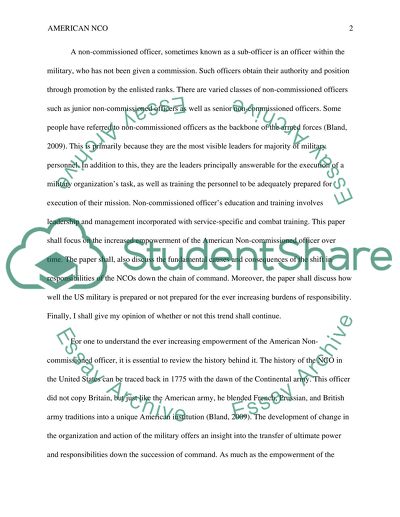Cite this document
(“Increased Empowerment Of The American Non-Commissioned Officer Essay”, n.d.)
Retrieved from https://studentshare.org/military/1441883-increased-empowerment-of-the-american-non-commissioned-officer
Retrieved from https://studentshare.org/military/1441883-increased-empowerment-of-the-american-non-commissioned-officer
(Increased Empowerment Of The American Non-Commissioned Officer Essay)
https://studentshare.org/military/1441883-increased-empowerment-of-the-american-non-commissioned-officer.
https://studentshare.org/military/1441883-increased-empowerment-of-the-american-non-commissioned-officer.
“Increased Empowerment Of The American Non-Commissioned Officer Essay”, n.d. https://studentshare.org/military/1441883-increased-empowerment-of-the-american-non-commissioned-officer.


